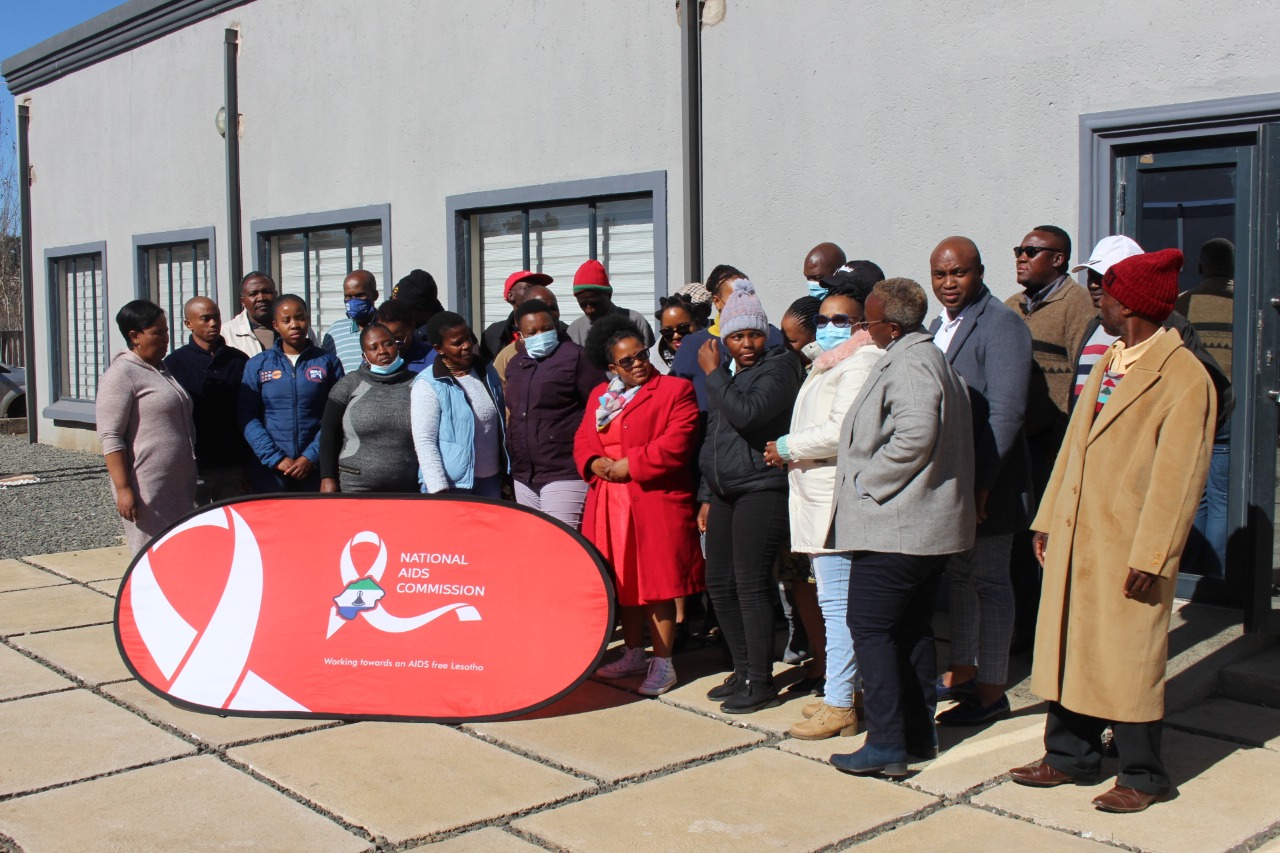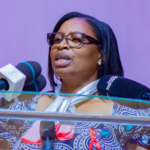…as country surpasses the 90-90-90 targets in record time
Mohloai Mpesi
The HIV and AIDS worries that have bedevilled the country will soon be put to rest as Lesotho seems to be on the right track in the fight against the pandemic.
This emerged in this weeks preliminary report of the second Lesotho Population-Based HIV Impact Assessment (LePHIA II) which states that Lesotho exceeded the 90-90-90 target.
According to LePHIA II, Lesotho has surpassed the mark by reaching 90-97-92, which means 90% of HIV positive persons know their status; 97% HIV-positive persons are on anti-retroviral treatment; and 92% of people on treatment have achieved viral suppression.
The preliminary results from LePHIA 2020 show substantial progress with 23 per cent of HIV prevalence (27 per cent among females and 18 per cent among males), which translates into approximately 324 000 adults living with HIV in the country. Of those who were diagnosed, the adults who tested HIV-positive 90 per cent reported they were already aware of their status (91 per cent of HIV positive females and 87.7 per cent of HIV positive males).
The report goes on to indicate that among the adults who tested HIV positive in the survey, 97 per cent self-reported current use of antiretroviral treatment (97 per cent of HIV positive females and 96 per cent of HIV positive males).
Among HIV positive adults who self-reported current use of antiretroviral treatment, 92 per cent has viral load suppression (93 per cent of HIV positive females and 91 per cent of HIV positive males.)
The LePHIA 2020 survey was conducted in 9 665 households and included 16 468participants from age 15 and above. The survey offered HIV counselling and testing with immediate return of results, HIV viral load testing, and collected information about the uptake of HIV care and treatment services. The results provide information on national and district-level progress towards HIV targets and goals. This is the second LePHIA survey following the first which was conducted in 2016-2017.
The National AIDS Commission (NAC) chairperson Ntokwenzani Xana hailed the tremendous work during the World AIDS Day celebration under the theme “Global Solidary, Shared responsibility which was held at the Royal Palace gardens this week.
He said by 2030 Lesotho will be an AIDS free country should they keep the same momentum.
This means a great achievement, that is progress worth celebrating and it also means that if we go on this pace we will end AIDS by 2030 which is the ultimate goal.
NAC embarked on resuscitation of district AIDS committees which are mandated to oversee and coordinate HIV response at district level. The first task was to develop AIDS fast track plans tailor-made to address HIV and AIDS related challenges in each district. Quthing will have its own fast track plan, Mokhotlong, Qacha’s Nek and so on.
The year 2020 was marked by a dialogue in a face based factor. As we commemorate this day, the National Religious Forum was launched in September 2020 and religious leaders came together to review their commitment. This is proof that the country’s solidarity is truly shared responsibility as one of the biggest factors in the HIV and AIDS response, he said.
As a nation, we can safely say we are standing on the shoulders of giants and will reach for the stars together. I would like to thank all who have worked diligently around the globe in curbing the spread of this pandemic, he said adding that Lesotho received a shot in the arm with a chunk of money to battle against the virus.
Lesotho submitted a successful global fund proposal to combat HIV and AIDS to the tune of USD7 561 462 (M2 500 551 750). Lesotho was requested by the Global fund to write a proposal which addresses issues of Covid-19, and Lesotho successfully secured USD1 14 967(M15 450 700) for the Covid-19 response.
These resources will be used with the outmost transparency to ensure that we reach the 95, 95, 95 target by 2023 as we have committed ourselves to. Lesotho also started a multi-month drug dispensation in November 2019; this was very helpful in ensuring that people who use ARV accessed treatment during Covid-19 lockdown.
Meanwhile, the United Nations Resident Representative Salvator Niyonzima stated that the fight is still far from over. He urged the United States President’s Emergency Plan for AIDS Relief (PEPFAR) and other involved stakeholders to hold steadfast to eradicate the virus completely.
The combined epidemics of Covid-19, HIV, TB and other health challenges remind us of how fragile the gains made in the response to HIV are. Lesotho has made very significant progress in addressing HIV as evidenced by LePHIA II.
These are very important milestones in the AIDS response, so, congratulations Lesotho! I think it is only legitimate for all actors to look back with a sense of pride. At the same time, when we look forward, we all know that the fight is far from over. The unfinished business includes protecting and sustaining our gains; and conquering new territory. This is certainly not time for complacency. Now more than ever, partners, including PEPFAR and the Global Fund need to bring all hands on deck. We must work smarter and harder to ensure that the remaining people who are HIV positive and do not know their status get the support they need to do so and access treatment services, he said.
He continued that the burden of stigma from the newly infected people has to come to end, and that men ought not to shy away from testing and adhering to treatment.
We must address the remaining gaps in our response: the persistent high vulnerability of young girls and women aged 15-24 to HIV infection is not acceptable. It is not acceptable that we still have new infections passing from parents to new-born babies when we have the science and tools to end transmission once and for all. It is not acceptable that men continue to lag behind in testing and adhering to their treatment and those women who work in factories, sex workers, un-circumcised men, men who have sex with men and prisoners bear the burden of new infections and stigma.
The Theme for this WAD is Global Solidarity, Shared Responsibility. Global solidarity and shared responsibility helped us reach this point in addressing the epidemic and the same will take us to the final victory without leaving anyone behind, he said.
We have seen it; COVID-19 threatens the progress that the world has made in health and development over the past 20 years and more so for countries in the South, like Lesotho. I salute the Ministry of Health and NACOSEC who, with support from partners and civil society mobilised quickly to protect the gains made in addressing HIV including multi-month dispensing of ARVs, strengthening community service delivery and ensuring that PLHIV are reached with information on protecting themselves against COVID-19 while continuing to take their treatment.
However, a lot remains to be done particularly on preventing new infections among adolescent girls and young women and other vulnerable Basotho. Data shows that during the lockdown there were unfortunate disruptions in prevention programming and support to civil society. This is unfortunate. We need to prepare better for sudden epidemics such as COVID-19, continue monitoring programmes and mitigating the impact to quickly regain any losses.
He added that, Like all epidemics, COVID-19 is widening the inequalities that already existed all over the World and Lesotho is not spared. Gender inequality, gender-based violence, poverty, social and economic inequalities exacerbate epidemics such as HIV and COVID-19. While we have done well on the targets, these underlying inequalities persist. The gains made will remain fragile until these inequalities are addressed. It is time to double up efforts to address these underlying challenges that drive epidemics.
It is the strength within communities, inspired by a shared responsibility to each other that has contributed in great part to our victories over HIV. Today more than ever, we need that strength to beat the colliding epidemics of HIV and COVID-19, he said.
The United States Ambassador Rebecca E. Gonzales shared the same sentiments stating that although the results are preliminary, Basotho should pride themselves with the great achievement which was reached at the time of Covid-19.
As the United States Ambassador, I firmly attest that our strong bilateral cooperation is the cornerstone of PEPFARs success across this beautiful country. We need all sectors and diverse partners working together to achieve our collective goals. This partnership has brought us to this moment right now, celebrating Lesotho’s incredible progress in achieving the UNAIDS 90, 90, 90 targets.
Lesotho’s success story is one that the world needs to hear as we are in the throes of a ravaging pandemic. Just yesterday, I stood beside Her Majesty Queen Masenate Mohato Seeiso as she announced the preliminary results of the 2020 Lesotho Population-Based HIV Impact Assessment. I am proud to say that Lesotho is at 90-97-92. I must emphasise that these results are preliminary, but they indicate that Lesotho is at epidemic control, she said.
All Basotho should feel a sense of pride in knowing that the Kingdom of Lesotho will be added to just a small list of African nations that will have triumphed over HIV, what an outstanding achievement when you consider that Lesotho accomplished this in the middle of the Covid-19 pandemic.
Summary
- The HIV and AIDS worries that have bedevilled the country will soon be put to rest as Lesotho seems to be on the right track in the fight against the pandemic.
- The report goes on to indicate that among the adults who tested HIV positive in the survey, 97 per cent self-reported current use of antiretroviral treatment (97 per cent of HIV positive females and 96 per cent of HIV positive males).
- I would like to thank all who have worked diligently around the globe in curbing the spread of this pandemic, he said adding that Lesotho received a shot in the arm with a chunk of money to battle against the virus.

Your Trusted Source for News and Insights in Lesotho!
At Newsday Media, we are passionate about delivering accurate, timely, and engaging news and multimedia content to our diverse audience. Founded with the vision of revolutionizing the media landscape in Lesotho, we have grown into a leading hybrid media company that blends traditional journalism with innovative digital platforms.








